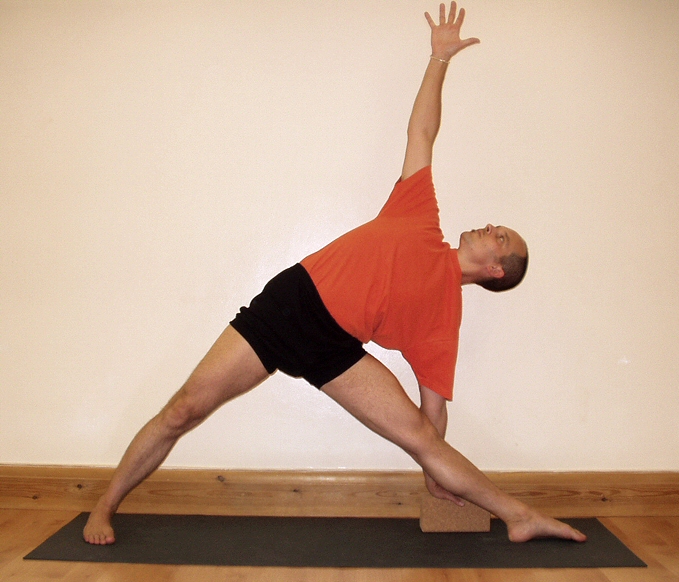Yoga, an ancient practice originating in India over 5,000 years ago, has transcended time and culture to become a global phenomenon. It is much more than a series of physical postures; it is a holistic system that harmonizes the mind, body, and soul. In this detailed article, we will explore the 25 benefits of yoga physically, mentally, emotionally, psychologically and even socially such as from improving flexibility and reducing stress to enhancing mental clarity and spiritual growth. Without, further ado, let’s know all the 25 mind-blowing benefits of yoga!
A Brief Overview of Yoga
First, let’s learn briefly about yoga and what it signifies before delving into the benefits of yoga. Yoga encompasses a wide range of practices, but they all share a common goal: to unite the individual’s physical, mental, and spiritual aspects. The word “yoga” itself means union or yoking, signifying the integration of these dimensions. Some of the most well-known branches of yoga include:
Hatha Yoga
Focuses on physical postures and breathing techniques, making it an excellent starting point for beginners.

Vinyasa Yoga
Emphasizes the coordination of breath and movement in a flowing sequence of poses.

Bikram Yoga
Conducted in a heated room with a set sequence of 26 poses and two breathing exercises.
Ashtanga Yoga
A challenging, structured practice involving a set series of postures and synchronized breathing.

Kundalini Yoga
A spiritual practice that combines postures, breathing exercises, mantra, and meditation to awaken inner energy.

Iyengar Yoga
Places strong emphasis on precision, alignment, and the use of props to assist in poses.

Restorative Yoga
A gentle practice that uses props extensively to support deep relaxation and healing.

Yin Yoga
Involves holding poses for an extended period, targeting deep connective tissues and promoting flexibility.

Physical Benefits of Yoga
Improved Flexibility
One of the most evident benefits of yoga is increased flexibility. Regular practice gradually lengthens and stretches muscles, improving range of motion and reducing the risk of injuries.
Enhanced Strength
Many yoga poses require the use of body weight for resistance, effectively building muscular strength. This strength is balanced across all muscle groups, promoting overall fitness.
Better Posture
Yoga promotes awareness of body alignment and encourages good posture habits. This can help alleviate and prevent issues related to poor posture, such as back pain.

Increased Balance and Coordination
Yoga poses often involve balance and coordination, enhancing these skills, which are valuable in everyday life and sports. So, no doubt it is one of the most amazing benefits of yoga.
Pain Relief
Yoga can alleviate chronic pain conditions like lower back pain, arthritis, and migraines by increasing flexibility and promoting relaxation.

Don’t Miss: Cupping Therapy: Methods & Techniques, Benefits and More!
Mental and Emotional Benefits of Yoga
Stress Reduction
Yoga’s emphasis on controlled breathing and mindfulness helps reduce the production of stress hormones, leading to a calmer mind and reduced anxiety.

Improved Mental Focus
Regular practice enhances concentration and mental clarity, making it easier to stay present and focused in daily life. This is one of those outstanding benefits of yoga that is specifically beneficial for students that’s why students are also recommended to do yoga regularly.
Emotional Regulation
Yoga encourages self-awareness and emotional intelligence, aiding in the recognition and management of emotions. In simpler words, you will have more control over your emotions so you can manage your anger and other negative emotions comparatively easily.
Better Sleep
Yoga’s relaxation techniques can improve sleep quality and help those struggling with insomnia. And, we all are well aware of the fact that how essential quality sleep is for our overall well-being. Thus, it is certainly one of the most vital benefits of yoga.

Enhanced Mood
The release of endorphins during yoga contributes to a more positive mood and can be particularly helpful for those dealing with depression. So, along with better emotional regulation, you will also get a confident and happy mood thanks to regular yoga practice.
Anxiety Management
Breathing exercises in yoga help activate the body’s relaxation response, reducing symptoms of anxiety and panic. For this reason, yoga can be really beneficial for people who suffer from anxiety issues or panic attacks.
Physiological and Health Benefits of Yoga
Balanced Blood Pressure
This is one of the greatest health benefits of yoga because we know how millions of people are suffering from high blood pressure. But, regular yoga practice can help maintain healthy blood pressure levels which leads to reduction of the risk of hypertension and heart disease.

Optimal Respiratory Function
Pranayama, or breath control, exercises in yoga improve lung capacity and efficiency. This can also lead to healthy lungs and heart because this type of exercise forces your body to inhale more oxygen into your body which leads to healthy lungs with more than enough oxygen and better blood circulation all over the body.
Enhanced Digestion
Certain yoga poses aid in digestion by massaging abdominal organs and encouraging healthy bowel movements. So, this is one of those excellent benefits of yoga that can really help you if you have digestive issues.

Weight Management
Yoga promotes mindful eating and can help individuals maintain a healthy weight. Along with balanced diet and regular yoga practices, one can easily lose weight or stay at a healthy bodyweight.
Boosted Immune System
Stress reduction and improved circulation contribute to a strengthened immune system and a strong immune system can keep diseases at bay.
Pain Management
For those with chronic pain conditions, such as fibromyalgia or arthritis, yoga can provide relief and improve overall quality of life and well-being.
Spiritual and Philosophical Benefits of Yoga
Inner Peace
Many individuals find a sense of inner peace and tranquillity through their yoga practice, transcending the chaos of daily life. Inner peace is the key to happiness and contentment in a human life.
Connection to Higher Self
Yoga’s spiritual aspects, such as meditation and mindfulness, foster a deeper connection to one’s higher self or inner divinity.
Moral and Ethical Growth
The ethical principles of yoga, known as the Yamas and Niyamas, guide practitioners toward a more compassionate and virtuous life. This is one of the greatest philosophical benefits of yoga that truly defines a human being.
Greater Self-Awareness
Yoga encourages self-reflection, helping practitioners understand their true nature and purpose. This can ultimately lead to greater consciousness which means you can think better before you do something. Most importantly, you can stay more conscious and focused with your daily activities in life and sub-consciousness will less likely be your thing because you will be aware of who you are and what you are doing with your life!
Cultivation of Mindfulness
Yoga’s focus on being present in the moment extends beyond the mat, leading to a mindful and fulfilling life. And mindfulness also leads to greater concentration and focus on the activities you do while enjoying the present moment fully without stressing yourself about the future.
Social and Community Benefits of Yoga
Community and Support
Joining a yoga class or community provides a sense of belonging and support from like-minded individuals to whom you can share your thoughts and feelings.

Stress Reduction in Relationships
Reduced stress and improved emotional regulation from yoga can positively impact relationships with family, friends, and partners. We already mentioned how yoga is beneficial to regulate emotions and reduce stress. So, this is how yoga can help you in your relationships with your loved ones.
Tips for Starting and Maintaining a Yoga Practice
If you’re interested in reaping the benefits of yoga, consider these following tips.
- Begin with beginner-friendly classes or gentle styles like Hatha or Restorative Yoga.
- Seeking guidance from a qualified yoga instructor ensures you practice safely and effectively.
- Be patient and realistic about your progress. Yoga is a journey, not a destination.
- Establish a consistent practice routine that fits your schedule.
- Pay attention to your body’s signals and modify poses as needed to avoid strain or injury.
- Drink water before and after your practice to stay hydrated.
- Invest in a comfortable yoga mat and suitable attire for your practice.
- Experiment with different yoga styles to find what resonates with you.
- Apply the principles of mindfulness and self-awareness to your daily life.
- Yoga is not about competing with others but about honoring your body’s abilities and limitations.
Conclusion
The benefits of yoga extend far beyond the physical realm, encompassing mental, emotional, spiritual, and social well-being. By embracing a regular yoga practice, individuals can cultivate strength, flexibility, and balance in both body and mind. Whether you seek stress relief, physical fitness, or a deeper connection to your inner self, yoga offers a path to holistic health and personal growth. As you explore the multifaceted advantages of yoga, you’ll embark on a transformative journey toward greater self-awareness, vitality, and inner peace. Hopefully, you found this article about the 25 benefits of yoga helpful enough. If you really did then let us know your thoughts in the comment section. Thanks for visiting and appreciating our work.
